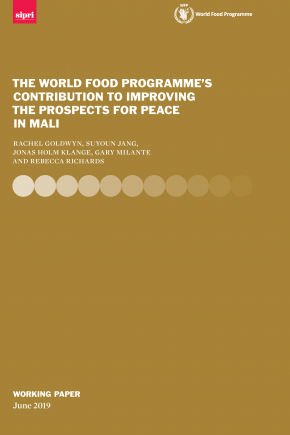The World Food Programme’s Contribution to Improving the Prospects for Peace in Mali

This Working Paper showcases detailed findings from field research in Mali, which focused on the part of World Food Programme’s (WFP) portfolio in Mali that includes food assistance for assets, general food distribution, the school meals programme and a social cohesion project funded by the Peacebuilding Fund.
This paper and the related research are part of a wider knowledge partnership between SIPRI and the WFP, which aims to better understand and strengthen WFP’s contribution to improving the prospects for peace. In the light of its complex context—where humanitarian, development and peace agendas intersect—Mali was selected along with three other countries (El Salvador, Iraq and Kyrgyzstan) for pilot phase research.
The synthesized findings of these four cases studies can be found in the preliminary report The World Food Programme’s Contribution to Improving the Prospects for Peace.
1. Introduction
2. Conflict context analysis
3. WFP in Mali
4. WFP’s contribution to improving the prospects for peace in Mali
5. Cross-cutting issues: Conflict sensitivity, participatory planning and data


